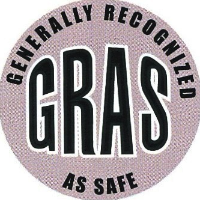Loopholes and Weak Enforcement Lead to Unapproved Chemicals Added to Foods

Americans may be consuming food laced with unsafe chemicals as a result of the federal government’s failing to adequately oversee and regulate food producers.
The Natural Resources Defense Council (NRDC) came to this conclusion after reviewing the food safety protection system managed by the Food and Drug Administration (FDA).
The investigation revealed that the FDA provides insufficient supervision when it comes to food safety. The agency also has allowed possible conflicts of interest to jeopardize safety evaluations of food and, perhaps worst of all, permitted companies for decades to put hundreds of chemicals in food without requiring FDA approval.
“Americans should expect that their food is safe to eat, but sadly today there’s no guarantee because safety oversight from federal agencies and food manufacturers is shockingly weak and hidden from public scrutiny,” Tom Neltner, NRDC health scientist and report co-author, said. “Congress should close the loophole responsible for this failing now. Until it does, FDA should strictly limit companies’ conflicts of interest and require them to disclose to the agency when they self-approve the safety of a chemical.”
The lax oversight has resulted in at least 275 chemicals used by 56 companies to appear in foods because federal law authorizes the industry to categorize them as “generally recognized as safe” (GRAS).
GRAS designation means chemicals become part of the food system without being reported to the FDA. This loophole also shields companies from having to answer questions about a chemical if the FDA discovers its addition to food.
“Companies have sometimes certified their chemicals as safe for use in food despite potentially serious allergic reactions, or adverse reactions in combination with common drugs, or have proposed using amounts of the chemicals in food at much higher levels than company-established safe levels,” according to the NRDC.
In instances when companies have sought a voluntary review by the FDA of their in-house GRAS safety designation, the FDA rejected that safety designation 20% of the time. In those cases, companies occasionally withdrew their safety notifications to prevent the FDA rejection from being made public.
“The agency's attempts to limit these undisclosed GRAS determinations by asking industry to voluntarily inform the FDA about their chemicals are insufficient to ensure the safety of our food in a global marketplace with a complex food supply,” wrote the report’s authors. “No other developed country in the world has a system like GRAS to provide oversight of food ingredients.”
The GRAS loophole and resulting lax oversight have been in place since Congress adopted a law in 1958 (the Food Additives Amendment [pdf]), which exempted common ingredients like vinegar and vegetable oil from regulation.
The exemption was approved because “there was a consensus in the scientific community that a chemical’s use was generally recognized as safe to consume,” according to an NRDC press release. “In the ensuing years, however, companies have heavily used this GRAS exemption to self-approve hundreds, if not thousands, of ingredients added to food.”
Yet another problem, the report says, is the allowance for companies to hire their own experts, even if they’re employees, to vouch for the chemicals’ safety, resulting in possible conflicts of interest.
The 275 chemicals used by the industry that have not been submitted to the FDA is “likely the tip of the iceberg,” noted the NRDC report. The authors previously reported that 1,000 undisclosed GRAS safety determinations—none with evidence of FDA approval—have been uncovered. That suggests that many more non-approved chemicals are currently being used in foods than the 275 cited in the report.
-Noel Brinkerhoff, Danny Biederman
To Learn More:
NRDC Report: Potentially Unsafe Chemicals in Food Threaten Public Health (Natural Resources Defense Council)
Generally Recognized as Secret (Natural Resources Defense Council)
FDA Approved 18 Animal Feed Additives Classified as “High Risk” (by Noel Brinkerhoff and Danny Biederman, AllGov)
35% of Food Additives Deemed Harmless were Evaluated by Manufacturer or Contractor Hired by Manufacturer (by Noel Brinkerhoff, AllGov)
- Top Stories
- Unusual News
- Where is the Money Going?
- Controversies
- U.S. and the World
- Appointments and Resignations
- Latest News
- Trump Orders ICE and Border Patrol to Kill More Protestors
- Trump Renames National Football League National Trump League
- Trump to Stop Deportations If…
- Trump Denounces World Series
- What If China Invaded the United States?






Comments